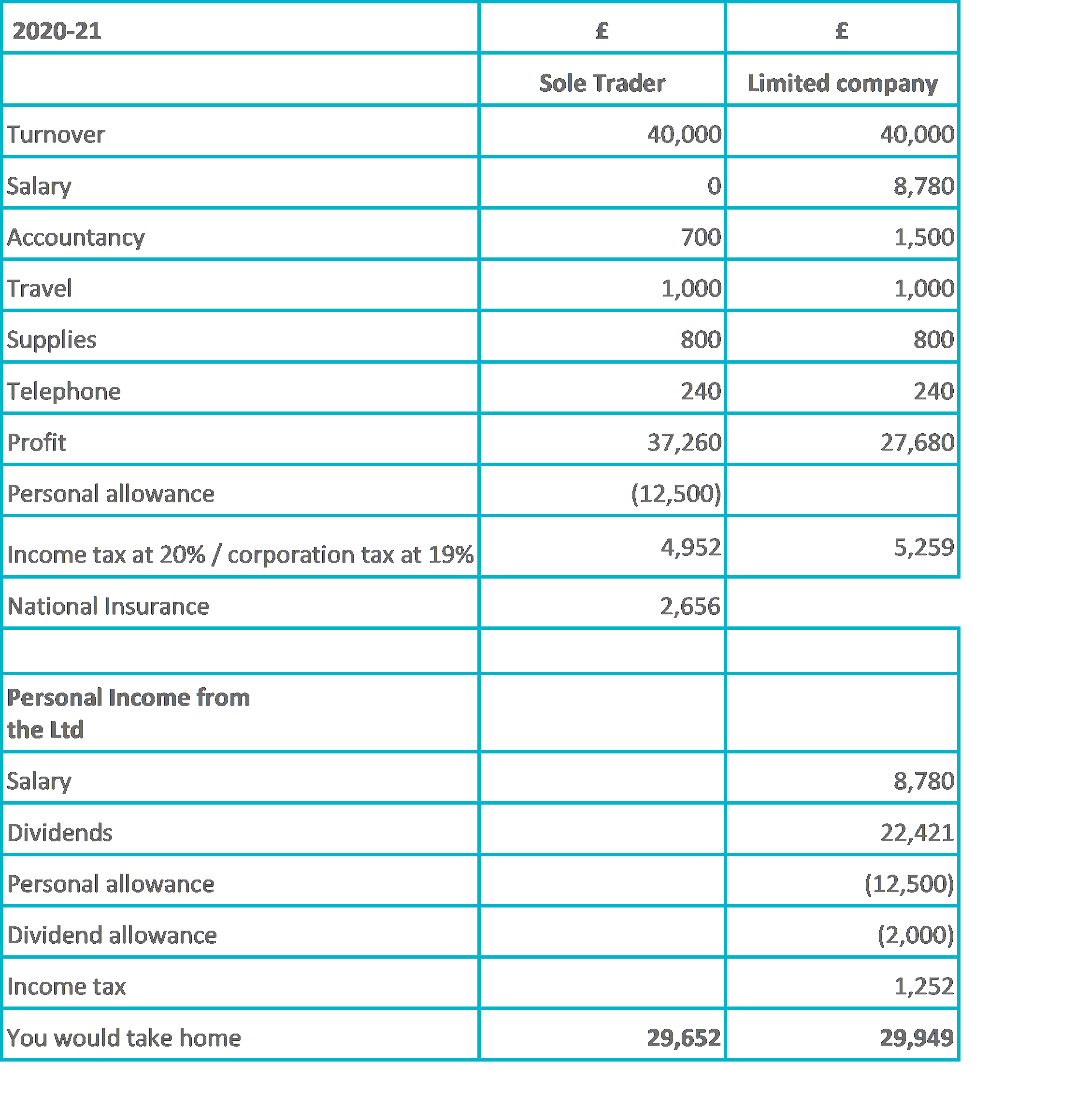

Fri 03 / 07 / 20
Sole Trader vs. Limited Company - what’s in it for me?
Have you been working as a sole trader for a while now and are wondering if there’s a better, more efficient way to run your business? In this blog, I’ll explain the main considerations and key differences between operating as a Sole Trader or a Limited Company. Read on to see if you can not only improve your business but also save money.
By Aggie Gogarty of Galloways Accounting
Legal and liability differences
As a sole trader your business is owned and controlled by just one person…you. The law sees you and the business as one entity. This means that you are personally responsible for any losses or debt incurred but also any profit after tax is yours to keep.
One of the key differences is that a limited company has a legal identity separate to yours. When setting up the limited company you usually become a director and a shareholder. Rather than keeping the profits, you become entitled to dividend distributions.
As a director of the limited company you will have a limited liability for any losses or debt the company incurred.
Tax efficiency
Trading through a limited company can offer tax savings in comparison to the sole trade, depending on your profit level.
Self-employment earnings are taxed at either 20%, 40% or 45%.
Your profit might also be liable to the Class 2 and 4 of National insurance rates.
Meanwhile, a limited company pays Corporation tax on their profit, which is currently set as 19%.
Directors are also paid a salary for the duties to the company which is offset as an expense to save corporation tax.
Any profit after tax can be distributed as dividends to the shareholders which are taxed at either 7.5%, 32.5% or 38.1%.
Below is an example to show the saving that can be made by trading through the limited company.

Pension
A limited company can choose to make employer’s pension contributions. These can be treated as an allowable business expense and offset against your company’s corporation tax liability.
As a sole trader you are not allowed employer’s pension contributions to be offset as a company expense and you can only make personal pension contributions. This however only starts to attract tax relief if your income level is in the higher rate tax band, currently set as £50,000.
Record keeping
As a sole trader you prepare your accounts annually and report the profit to the HMRC on the Self-Assessment Tax return. The accounts do not have to be filed with any other public body and remain private.
Limited companies prepare and submit their annual accounts each year to the HMRC and Companies House. The information filed with the Companies House is publicly available.
The preparation of the accounts can also be more complex due to a stricter rule governed by the Companies Act.
Raising Capital
A limited company, being a separate entity, can develop their own credit profile, separate to your personal credit rating. Investors are more likely to invest in a company than a sole trader. Loans are also limited to the company, so you do not become personally liable for the loan if the business should cease trading.
Sole traders can still borrow capital, but it will be subject to their own credit rating. They will also be personally liable for this loan should the business cease trading.

There is a lot to consider when taking a direction for your business. This article only touches on a few main differences between these two structures. The decision ultimately depends on the unique circumstances of your business. Our team in Galloways will be happy to answer any of your questions.
Get in touch with Aggie and the Galloways Accounting team on 01273 324163 or at wearegalloways.com
Our Latest Blogs
If you want to contribute to the Chamber blog, contact us on hannah@brightonchamber.co.uk




